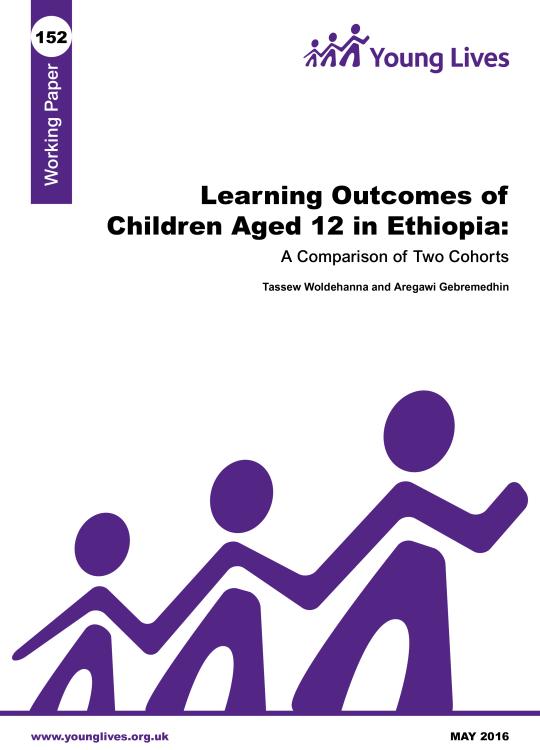
Breadcrumb
Learning Outcomes of Children Aged 12 in Ethiopia: A Comparison of Two Cohorts
This paper examines inequality of learning outcomes among children of the same age (age 12) but seven years apart – in 2006 and 2013. It employs statistical analysis and uses data from the Young Lives Older Cohort who were aged 12 in 2006 (Round 2 of the Young Lives survey) and the Younger Cohort who were aged 12 in 2013 (Round 4), focusing on the Peabody Picture Vocabulary Test (PPVT), mathematics and common reading test results.
Changes in test scores for the PPVT, mathematics and reading items were disaggregated by gender, location, region, caregiver education, and whether children attended private or government school. We calculated which groups were showing declining or improving levels of learning more and tried to test the significance statistically.
We found that the reading and maths competencies of children had fallen substantially; and girls experienced a higher rate of decline in levels of learning in maths and reading as compared to boys, as did children living in sites in SNNPR and Oromia (compared to children from other regions), rural children (compared to urban children), children in government schools (compared to non-government schools), and children whose caregivers had received little or no education. While the average PPVT raw score of children had increased, rural children and children from SNNPR had seen a decline in their scores; and increased inequality in test results between children in private and government schools and rural and urban children have also been observed. There is an urgent need to halt the increasing learning inequality among children, which may result in inequality in adulthood. The paper proposes further research to identify the in-school and out-of-school factors that contribute to declining levels of learning and widening inequality in learning outcomes.

